Video Gamer is reader-supported. When you buy through links on our site, we may earn an affiliate commission. Prices subject to change. Learn more
Old Detroit has a cancer. The cancer is crime. 20 years on from his last appearance in a major game, and 30 years on from the best-forgotten third instalment in the franchise, Detroit’s crime-fighting cyborg has returned with an all-new story, but the same familiar charm that made him a pop culture icon. RoboCop: Rogue City has certainly garnered plenty of attention in the run-up to its release, but how does the game compare with the hype?
The streets of Detroit have been taken over by a new drug called Nuke. While getting this drug off the streets and taking down the gangs that supply it is initially billed as the main focus of Rogue City, things quickly change with the introduction of the ‘new guy in town’, an unknown criminal mastermind with plans to conquer the city for himself. RoboCop, armed with his trusty Auto 9 and seemingly the plumpest lips in Detroit, is on the case.
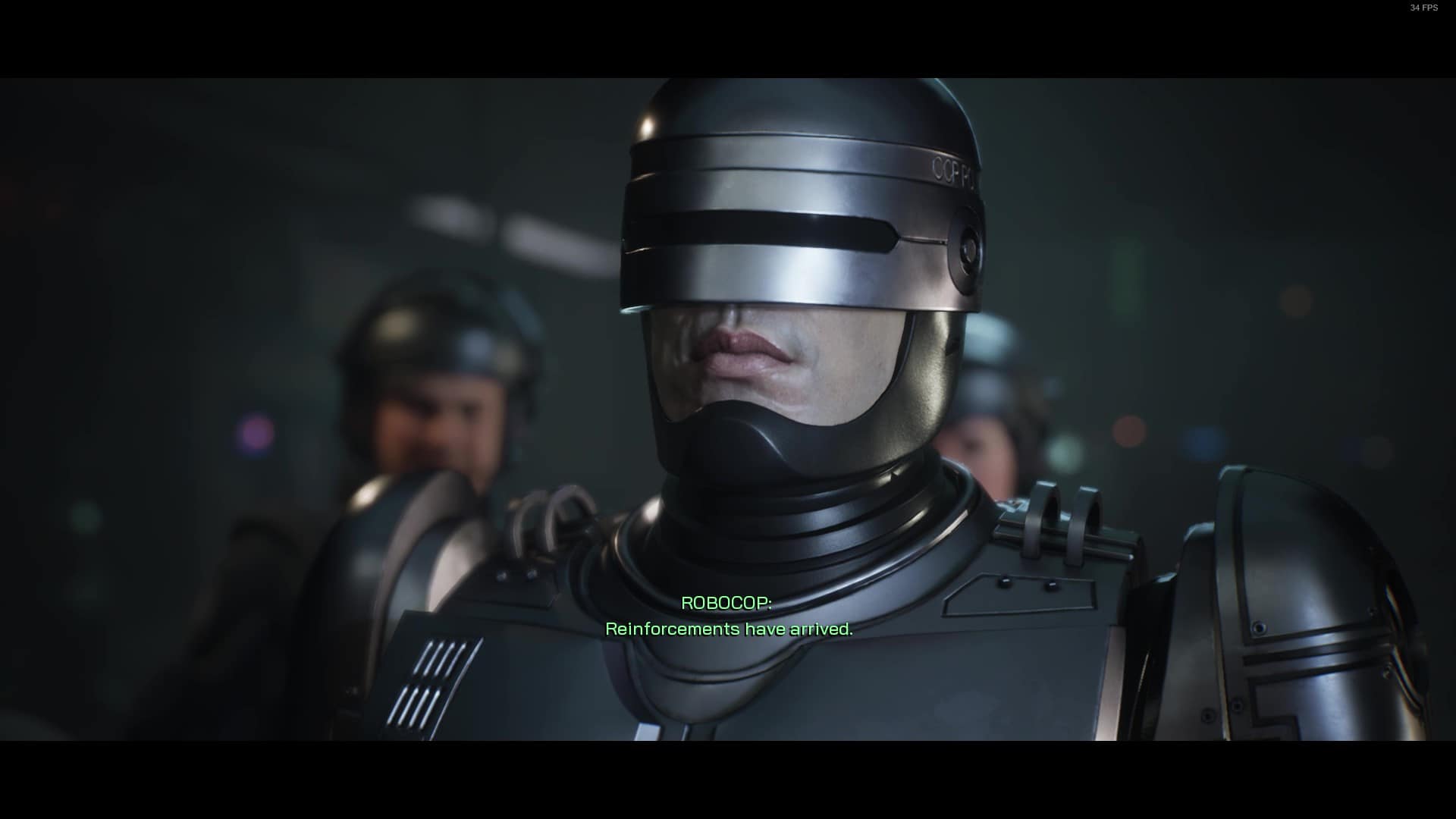
It’s a decent main plotline, and is well supplemented with some reasonably interesting sub-plots. The corporate corruption that plagues OCP, the company that created RoboCop, and that jeopardises him and his colleagues looms large in the mind throughout, with a plucky investigative journalist hot on the case. A critical mayoral election is set to decide the future of Detroit with RoboCop at the centre of it all. An aggressively earnest young cop disrespected by his peers who needs to be shown the ropes.
This is Action Movie 101 stuff, and while alone, none of these would be particularly enthralling, together they’re certainly interesting enough to carry you through the game. Near the end, however, several of these threads collide somewhat haphazardly, leading to a poorly paced and messy last couple of hours. It’s not a bad ending to the game by any means, but the execution does lead to a fairly unsatisfying conclusion for some of these side plots.
Weaved through all of this is the question of RoboCop’s identity. With the pressures of the case piling, RoboCop repeatedly experiences glitches which threaten to tear his human and robot halves apart. Black outs are followed by nightmarish visions of endless corridors, shifting rooms, and the haunting voices of Alex Murphy’s wife and son. The quest to conquer your shattered psyche generates some powerful moments, and is one of the highlights of the story. This was not something I was expecting from Rogue City going in, but I was very glad to see it.
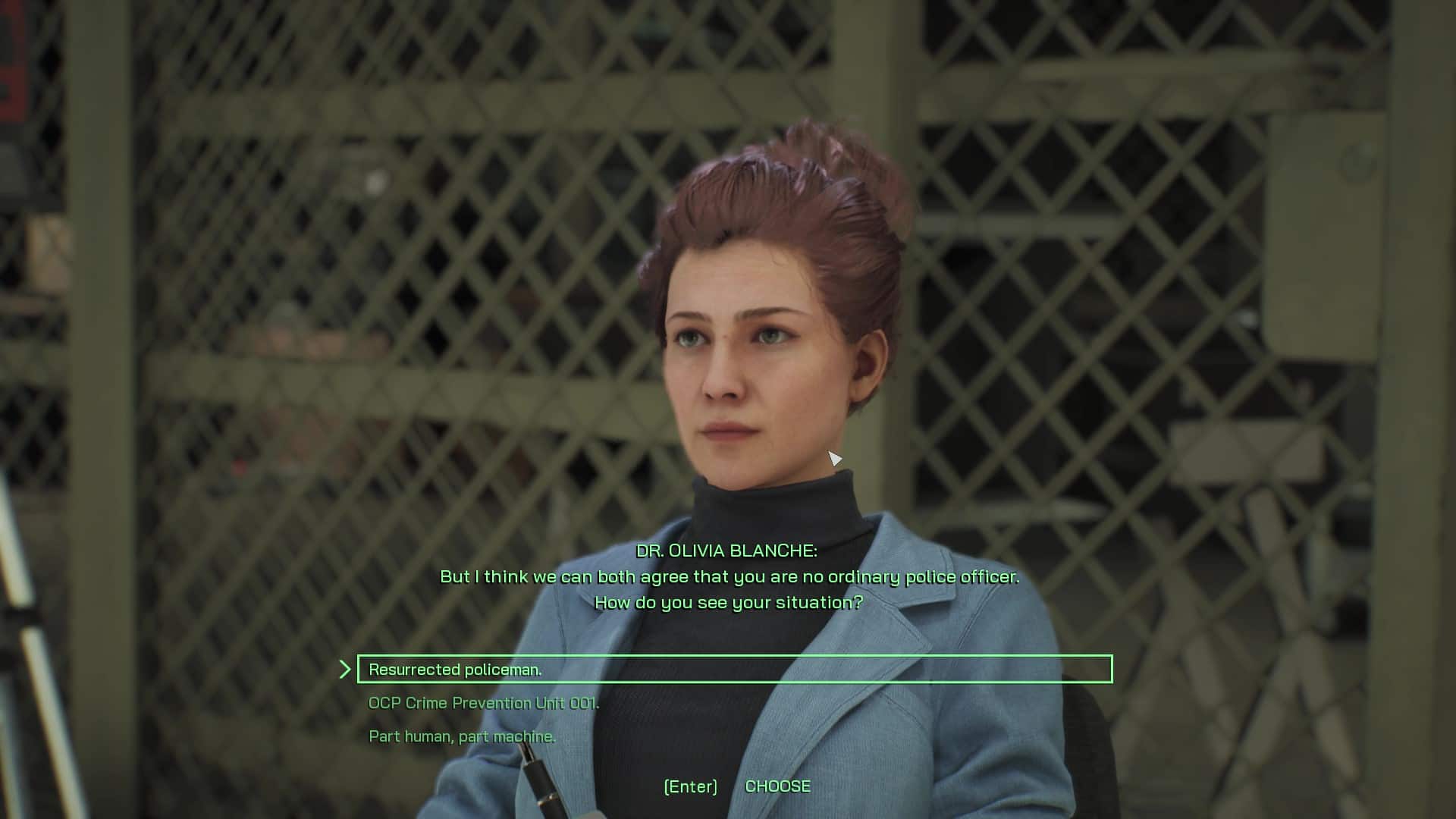
When it comes to its combat, Rogue City has an interesting problem to contend with, and that is RoboCop himself. His sluggish movements hardly lend themselves to the gameplay of your typical FPS, and developer Teyon has done an excellent job of faithfully incorporating this into the game. From the first second you take control, you really feel like RoboCop. From the slow, methodical movements and booming footsteps to the tank-like defences and superhuman strength, Rogue City truly conveys what it’s like to be the man-machine himself.
And when the combat is good, it’s great. Whether you’re blowing people’s heads and limbs off with over-the-top gore, flinging ragdolls across the room, or punching someone so hard their body explodes into a sea of blood, it’s exactly the kitschy 1980s action that makes RoboCop so fun. Right until the final mission, breaking down a door and blowing up heads in slow motion with a few quick shots is a thrill.
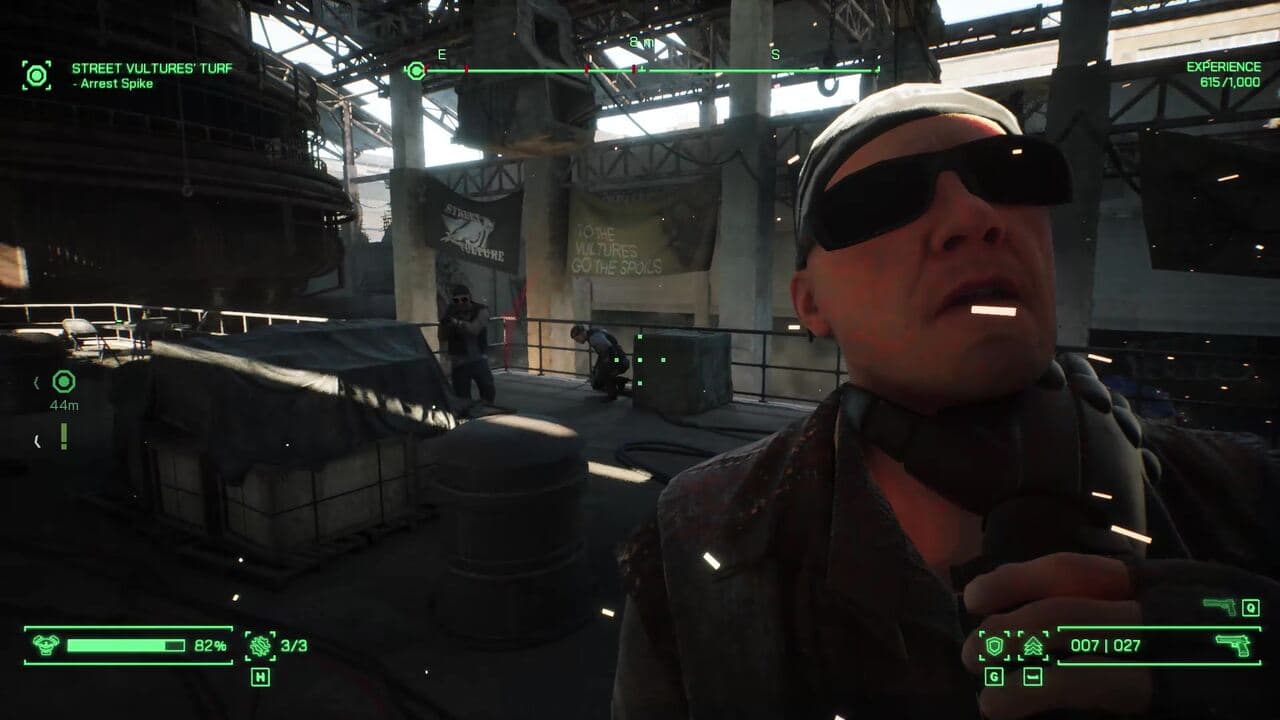
But outside of these moments, the combat can be dull, and sometimes frustrating. With RoboCop’s slow movements, your typical FPS strategies don’t work at all, leaving you with the choices of either tanking the hits or hiding behind cover. The game works best with the former. If you think of RoboCop in the films, he’s unstoppable, pushing relentlessly into his enemies, protected by his impenetrable armour. And Rogue City plays best when you do just that, but unfortunately, there are many instances where this isn’t an option.
Most of the game sees you take on small groups of enemies, letting you rely on your powerful armour and quick reactions to survive. In an attempt to make the game harder in later segments, new enemy types are introduced, but this typically boils down to more enemies with more health in an attempt to overwhelm you. This turns those flashy action sequences into five minutes of grinding your enemies down from behind cover.
This is especially true of the game’s take on boss fights, where you’re dumped in an arena to fight either a single boss or against waves of enemies. Taking on the iconic ED-209 is fun for all of 20 seconds before you realise that all you’re doing is running between pillars while holding down left-click. It’s an attempt to make the game harder, but all it serves to do is make the game slower, and in some cases, even a little boring.
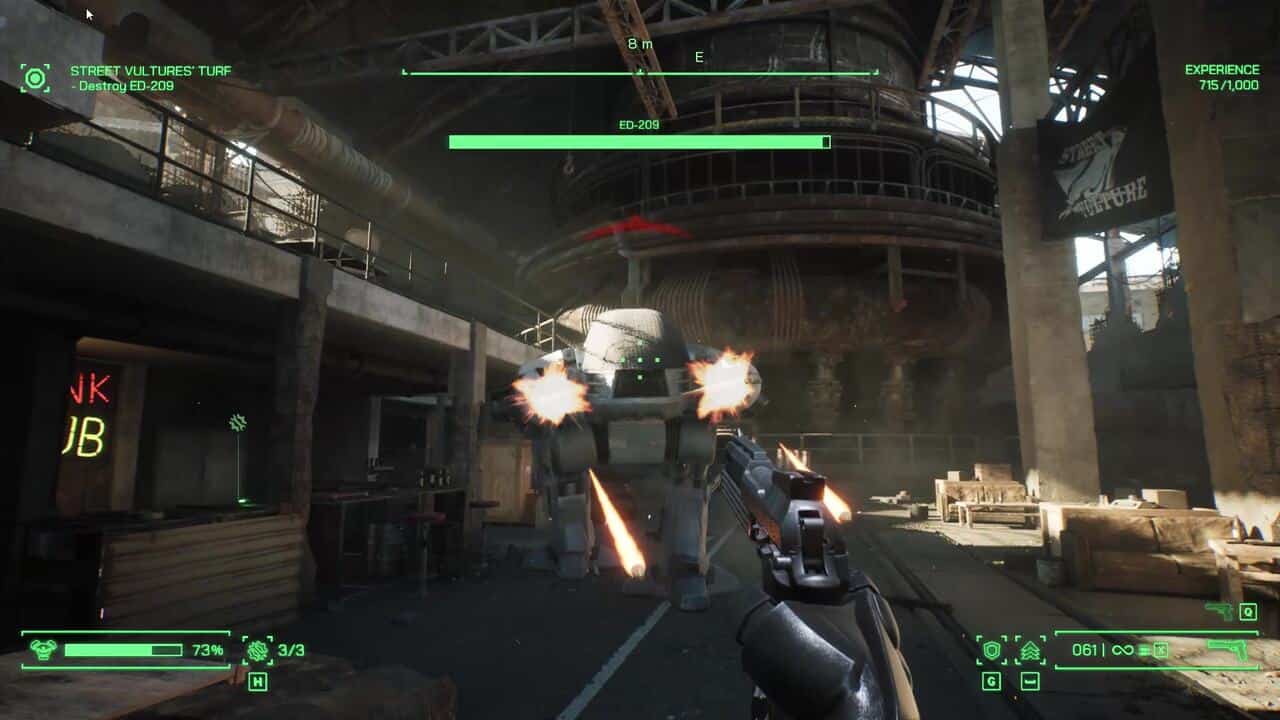
I have to sympathise with the developers here. RoboCop’s movements are simply not suited to the gameplay of modern FPS games. He runs slowly, he can’t jump, he can’t roll, dodge, or slide. And while they’ve done a great job of building an FPS around that, these long, grindy segments detract from a lot of the good found in the shorter segments.
It feels like an attempt to capture a more traditional FPS feeling. The problem is, I’m not playing a RoboCop game for a traditional FPS, I’m playing it for RoboCop. In attempting not to drift too far from the realms of the modern FPS, Rogue City briefly loses sight of its greatest selling point, and the combat suffers pretty significantly for it.
Rogue City has a couple of skill systems to upgrade your abilities and weapons. These can be handy, but had very little impact on my playthrough most of the time. You also have the opportunity to influence the game based on the choices you make, but I found that none of these choices mattered at all until the final couple of hours. Neither of these features is particularly good or bad, but feel more like shallow gameplay mechanics added for the sake of extra content rather than to make any meaningful impact.
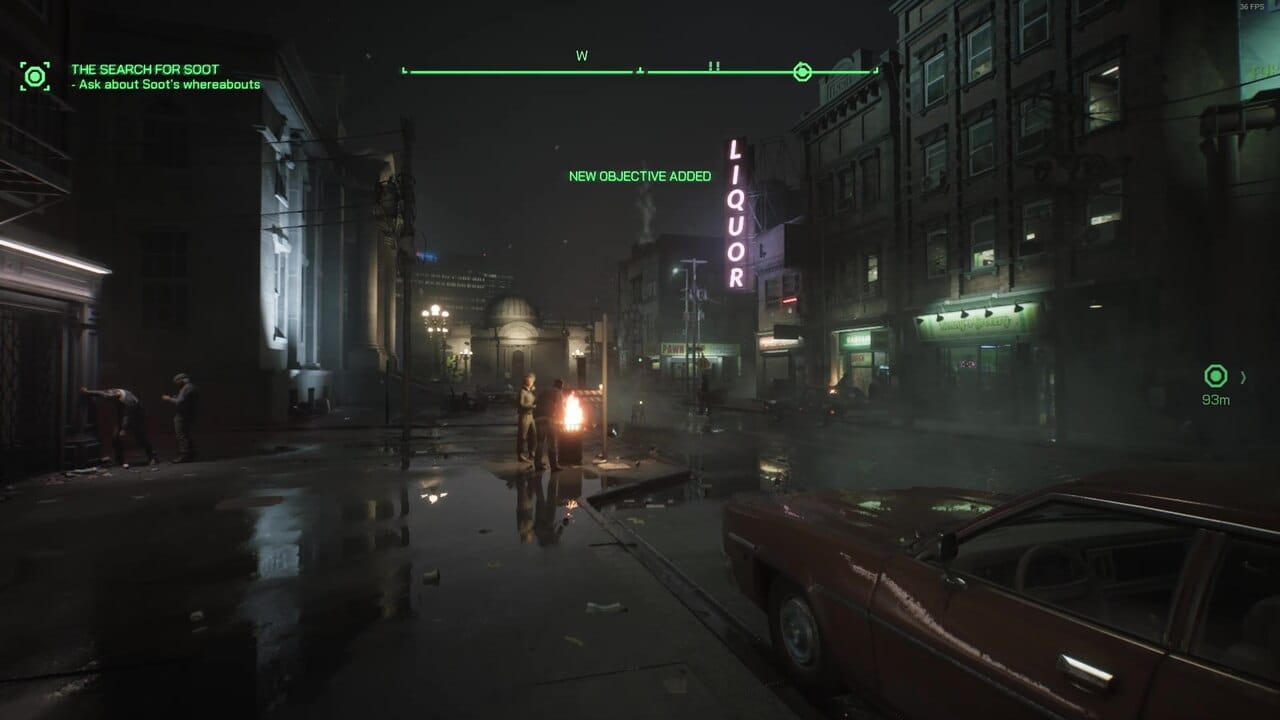
Outside of the main missions, you regularly spend time in the police station or patrolling a run-down local neighbourhood, helping out the citizens and dealing with petty crimes. The novelty of Detroit’s own machine of war being sent out to deliver parking tickets is pretty funny initially, but hardly worth engaging with more than a couple of times, especially with how slowly RoboCop walks around to explore the area.
Some of the missions found here are interesting enough, especially those linked to the aforementioned side plots, and contribute to an overall score at the end of each level, but most side content can be ignored without missing out on much – my recommendation is to just do what you find interesting and don’t feel too pressured to do anything else.
Regardless of my opinions on the game itself, Rogue City makes one thing clear, and that is that the team behind it loves RoboCop. The inimitable Peter Weller reprises his role to provide RoboCop’s famously deadpan voice lines and iconic catchphrases, and delivers them perfectly from start to finish.
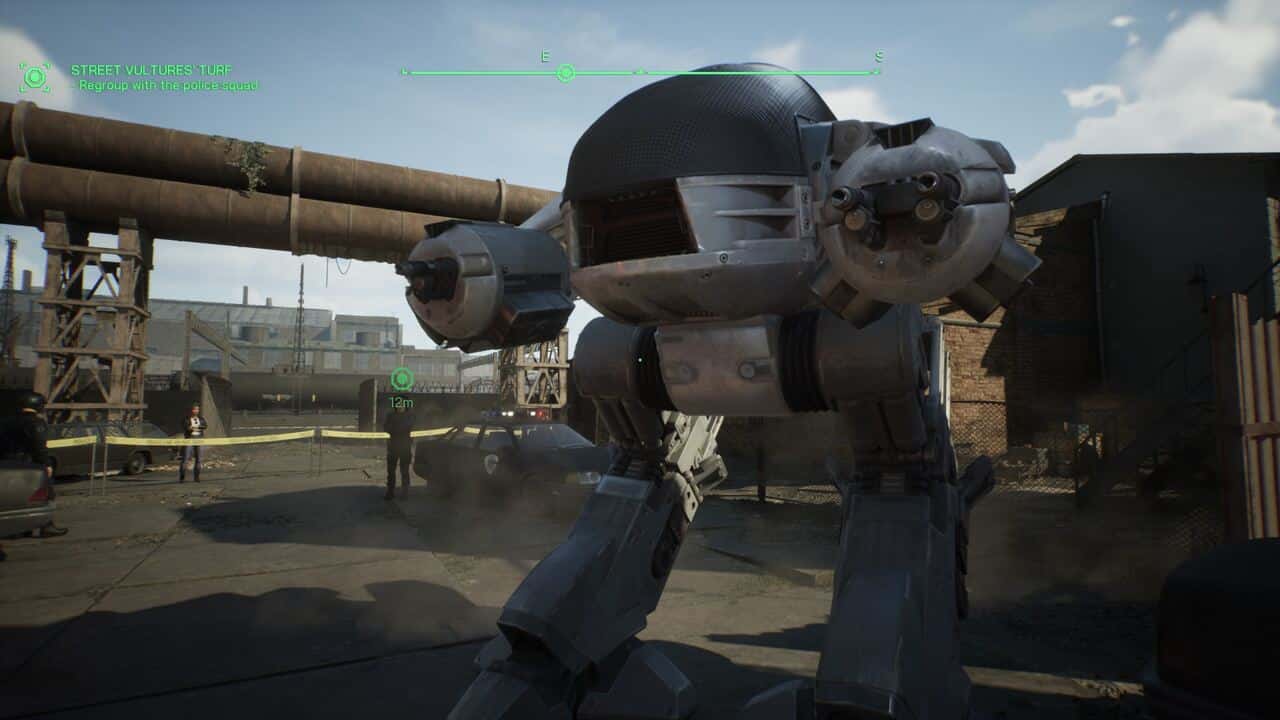
The game itself is full of little references that fans of the series will adore, rewarding them for engaging fully with the game. These range from the obvious such as Alex Murphy’s gun-slinging to a whole side quest full of niche references to RoboCop director Paul Verhoeven. I’m by no means a RoboCop super-fan, but each reference you catch makes you smile, and for true fans of the series, this game is full of them.
RoboCop: Rogue City wears its heart on its sleeve. A RoboCop game first and foremost, it is a love letter to the series, expertly capturing the camp 80s charm, excessive gore, and killer catchphrases that made the original film the classic it is today. At its best, the combat is thrilling, but begins to drag in later missions. Some decent storylines grab the interest, but are somewhat messily concluded, with side content that is rarely worth interacting with. For RoboCop fans, Rogue City has a lot to love, but for everyone else, it’s more of a novelty. Your move, creep.

